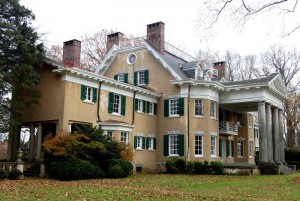Monday, January 3rd is an important Special T/E School Board Meeting. The meeting will be held at TEAO, Room #200, 940 W. Valley Road, Suite 1700, Wayne at 7:30 PM. For those unfamiliar, the building is located in a corporate complex just beyond the Southeastern Post Office. The meeting will focus on options to close the $8.8 Million budget gap in the 2011-2012 school budget.
In the last week, many of you have weighed in about the school budget deficit and the commentary has been very useful. However, there is no way to know if the School Board members follow Community Matters and have read our remarks. My guess is 2-3 of the board members regularly read the posts and comments but we cannot be sure of the others. That is why it is important to make sure that our voices are heard . . . you can attend Monday’s meeting and offer your remarks during the public comment section, or you can send the school board an email in advance of the meeting.
The email address for the T/E School Board – schoolboard@tesd.net
I received the following comment from Ray Clarke and thought it was important for the front page of Community Matters. Ray kindly shares the email that he sent to the School Board members below.
Ray Clarke, “I sent this to the School Board. I hope that other readers here will also make their views known directly.”
___________________________________
Dear School BoardI hope that you will take the following considerations into account as you vote for a preliminary budget on January 3rd, and conclude, as I do, that you should continue TESD’s sterling performance of increasing property taxes at a rate no more than the Act 1 index.
1. An increase in property taxes reduces the ability to finance house payments. Home price affordability in the past decade was stimulated by lower interest rates, despite the 50% increase in TESD property taxes. Now the bubble has burst, and short term prices are under yet more pressure from rises in mortgage rates and reduction in government subsidies. Prices remain above long term trend rates and many forecasts are for continued decline. The more the decline, the more homeowners will appeal assessments, the less revenue you will raise.
2. There is opportunity to focus spending further. The proposed preliminary budget has over 1/3 of expenses in “non-instructional” costs. The single best thing you can do to maintain the quality of the program is to attract the kind of residents that value education. High performing parents will be the source of high performing students. Smart parents do the calculus weighing test scores, college entrance results, key extra-curriculars (eg: sports, music) against cost. They’ll look for a School District that is as focused on performance and results as they are. (And of course the District Communications/PR program plays a role here).
3. The District can reduce the $28 million Fund Balance. As I recall from the Auditor presentation, that balance is substantially more as a percentage of expenditures than other districts. Although I expect you to do the work suggested by Mr Buraks to confirm the feasibility, I believe that more of this money can be returned to tax payers to pay for near term deficits while the cost structure is realigned through efficiencies and better employee contracts.
4. Holding the tax increase to the Act 1 level allows further analysis to determine the absolute floor in expenses and – if indeed a large tax increase is necessary – the most efficient and equitable option for raising revenues. I believe that you can not ignore the benefits of claiming an income tax that is already paid by a substantial portion of the district’s residents and for which the circumstances have changed dramatically over the past five years.
Many thanks for your your consideration of these items and for your time devoted to the interests of our School District.

